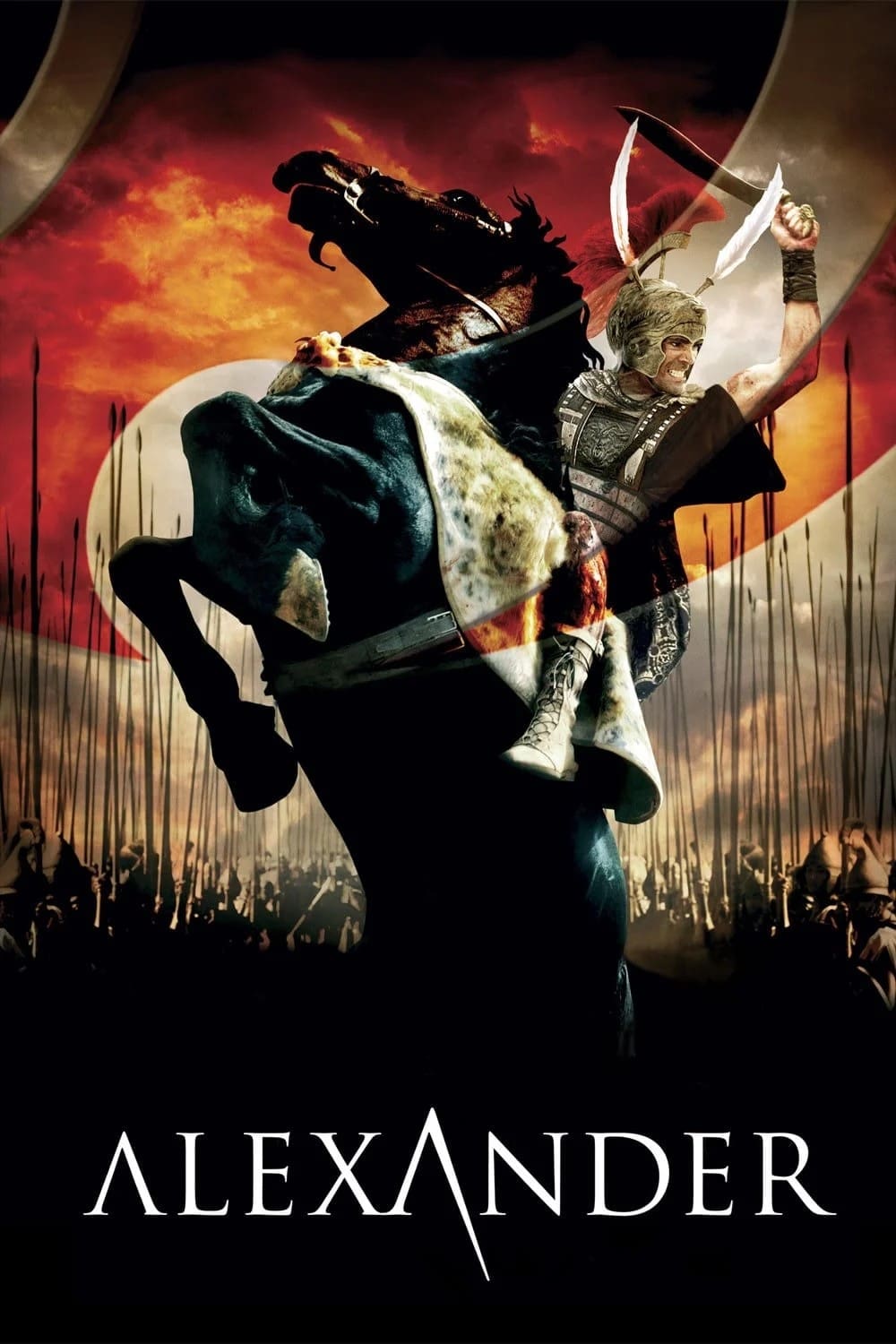
Alexander, the King of Macedonia, leads his legions against the giant Persian Empire. After defeating the Persians, he leads his army across the then known world, venturing farther than any westerner had ever gone, all the way to India.
30 Nov Alexander (2004)
The Borrowed
Cyrus and Darius knitted together the largest empire known before or since. Their method was innovative, to allow local control preserving the culture and gods. What they added was infrastructure: roads, a universal set of laws (the first case law) weights and monetary system.
The system was perhaps the least corrupt of any complex government before and since. Gathered in Persepolis were scholars tasked with collecting and synthesising knowledge from the entire world. Darius knew that any oaf can conquer, but only a statesman — a concept he invented — can govern.
300 years later the system had devolved, and various component states no longer saw advantage with the Persian federation. Into this, a bold and athletic thug moved. There were some spectacular battles of course, but most of the conquering was a matter of showing up in force.
When Alexander reached Persepolis he committed the greatest sin against knowledge known: he destroyed the great libraries, killed all the scholars and burned the entire place to the ground.
The one great invention of the Greeks was the principle of retrospective narrative, what we call history. Since they wrote the history, they get to choose the narrative. Their spinning is masterful, complex and rich. But all the components are borrowed, not original.
Now Stone makes a movie depicting what he thinks are key elements of the story. Stone has no original cinematic vision, all is borrowed from giants who went before. What he brings to the table is the ability to spin it together with some deftness, some craft. At least that once was the case.
Two narratives, the original and this pale child. Borrowed, but this doesn’t have the typical Greek riches. It doesn’t have the introspection either, despite the many cinematic tools available (and some from Greek theatre as well).
Hopkins continues his slide into the embarrassment of pure mannerism.
Posted in 2005
Ted’s Evaluation — 1 of 3: You can find something better to do with this part of your life.


No Comments